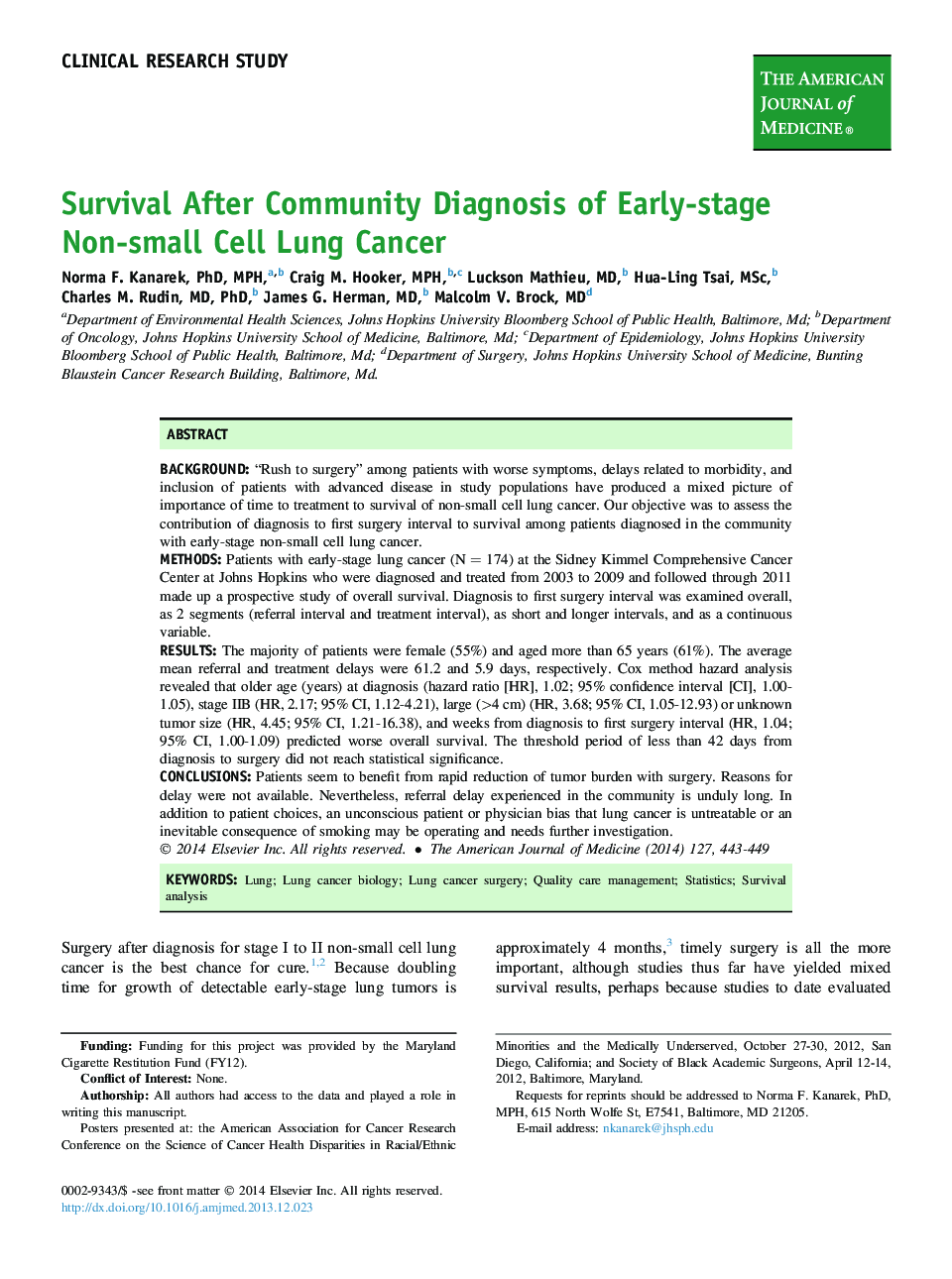| کد مقاله | کد نشریه | سال انتشار | مقاله انگلیسی | نسخه تمام متن |
|---|---|---|---|---|
| 5878394 | 1566137 | 2014 | 7 صفحه PDF | دانلود رایگان |
Background“Rush to surgery” among patients with worse symptoms, delays related to morbidity, and inclusion of patients with advanced disease in study populations have produced a mixed picture of importance of time to treatment to survival of non-small cell lung cancer. Our objective was to assess the contribution of diagnosis to first surgery interval to survival among patients diagnosed in the community with early-stage non-small cell lung cancer.MethodsPatients with early-stage lung cancer (N = 174) at the Sidney Kimmel Comprehensive Cancer Center at Johns Hopkins who were diagnosed and treated from 2003 to 2009 and followed through 2011 made up a prospective study of overall survival. Diagnosis to first surgery interval was examined overall, as 2 segments (referral interval and treatment interval), as short and longer intervals, and as a continuous variable.ResultsThe majority of patients were female (55%) and aged more than 65 years (61%). The average mean referral and treatment delays were 61.2 and 5.9 days, respectively. Cox method hazard analysis revealed that older age (years) at diagnosis (hazard ratio [HR], 1.02; 95% confidence interval [CI], 1.00-1.05), stage IIB (HR, 2.17; 95% CI, 1.12-4.21), large (>4 cm) (HR, 3.68; 95% CI, 1.05-12.93) or unknown tumor size (HR, 4.45; 95% CI, 1.21-16.38), and weeks from diagnosis to first surgery interval (HR, 1.04; 95% CI, 1.00-1.09) predicted worse overall survival. The threshold period of less than 42 days from diagnosis to surgery did not reach statistical significance.ConclusionsPatients seem to benefit from rapid reduction of tumor burden with surgery. Reasons for delay were not available. Nevertheless, referral delay experienced in the community is unduly long. In addition to patient choices, an unconscious patient or physician bias that lung cancer is untreatable or an inevitable consequence of smoking may be operating and needs further investigation.
Journal: The American Journal of Medicine - Volume 127, Issue 5, May 2014, Pages 443-449
